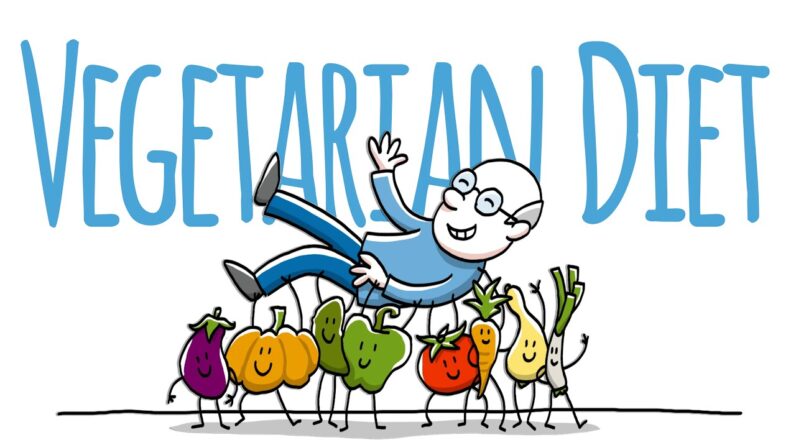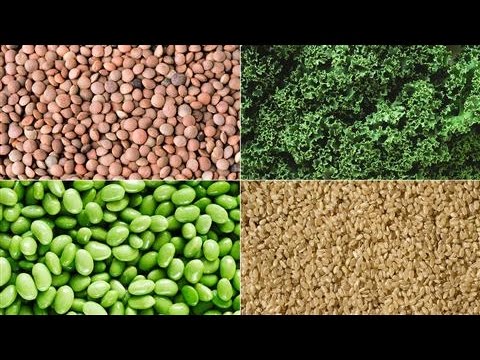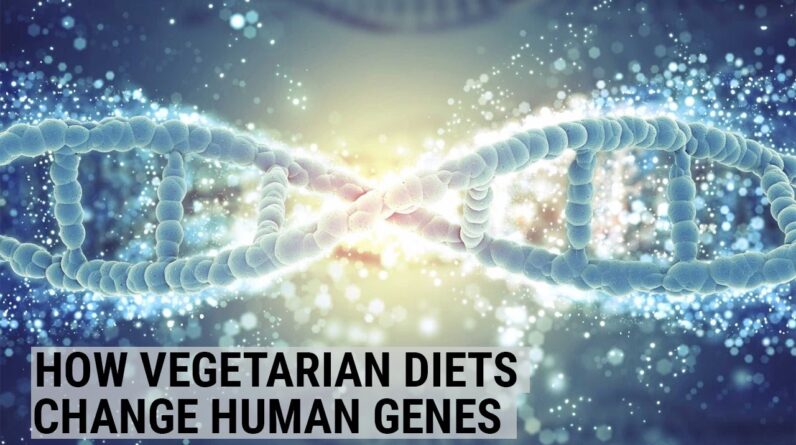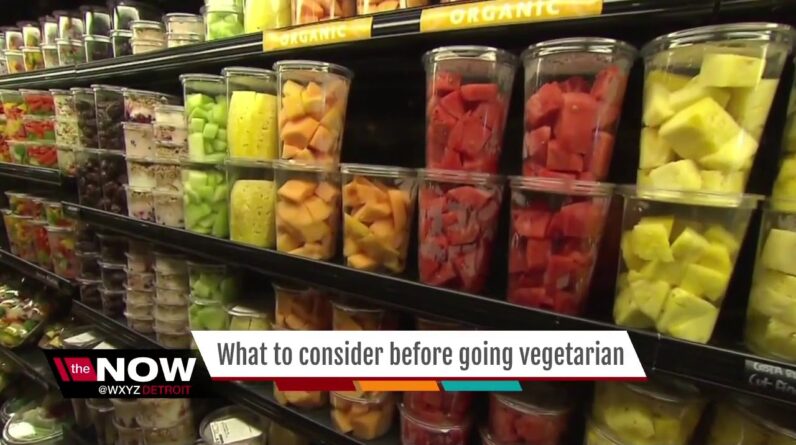
Reduce Your Risk of Chronic Diseases with a Vegetarian Diet! Craving a juicy steak or a tender serving of filet mignon? Well, you might want to consider craving something other than red meat. According to researchers at Loma Linda University Health, a vegetarian diet can significantly lower your risk of chronic diseases. In fact, their study found that vegetarians have a lower risk of high blood pressure, high cholesterol, diabetes, obesity, and even dying from heart disease compared to non-vegetarians. The researchers also discovered that vegetarians are 22 percent less likely to develop colorectal cancers, which is the second leading cause of cancer death in the United States. So, if you want to decrease your chances of chronic disease and live a longer, healthier life, joining the vegetarian lifestyle might just be the way to go!
But how can you start incorporating a vegetarian diet into your life and reap its benefits? If giving up meat entirely seems like too much, you can still make positive changes by reconsidering how often you eat meat. For example, try eating only fish or other meats once a week to experience similar health benefits associated with a vegetarian lifestyle. Another tip is to reduce your intake of refined foods like sugar, desserts, snack foods, and fast food meals. Instead, opt for whole grains and natural foods like fruits, vegetables, legumes, and nuts. And the closer you can get to a natural state by growing your own garden or shopping at local farmer’s markets, the more helpful it can be. By following these tips, you can lower your risk for chronic disease and potentially add 6 to 9 years to your life. So let’s LIVE IT and start on the path towards a healthier, longer life!

This image is property of i.ytimg.com.
Benefits of a Vegetarian Diet
A vegetarian diet offers numerous benefits for your overall health and well-being. By adopting this plant-based lifestyle, you can reduce the risk of chronic diseases, maintain a healthy weight, and increase your lifespan. Let’s explore some of the key advantages a vegetarian diet provides.
Lower risk of chronic diseases
Research conducted by the Adventist Health Studies at Loma Linda University Health has shown that individuals who follow a vegetarian diet have a lower risk of chronic diseases. Compared to non-vegetarians, vegetarians have a reduced risk of high blood pressure, high cholesterol, diabetes, and obesity. Additionally, they have a lower risk of dying from heart disease. These findings highlight the significant impact a vegetarian diet can have on preventing chronic conditions.
Lower risk of colorectal cancer
Colorectal cancer is the second leading cause of cancer-related deaths in the United States. However, studies have found that vegetarians are 22% less likely to develop colorectal cancer. By choosing a vegetarian diet, you can significantly reduce the risk of this deadly disease and protect your long-term health.
Lower obesity rates
Obesity is a growing concern worldwide, contributing to various health problems such as heart disease, diabetes, and certain types of cancer. One of the benefits of a vegetarian diet is its ability to lower obesity rates. Vegetarians tend to have a lower body mass index (BMI) and a healthier weight compared to non-vegetarians. By adopting a plant-based lifestyle, you can effectively manage your weight and reduce the risk of obesity-related diseases.
Lower risk of high blood pressure
High blood pressure, or hypertension, is a leading risk factor for heart disease and stroke. Studies have shown that individuals following a vegetarian diet have a lower risk of developing high blood pressure. By eliminating animal products and consuming nutrient-rich plant-based foods, you can promote optimal blood pressure levels and maintain a healthy cardiovascular system.
Lower risk of high cholesterol
Elevated cholesterol levels can increase the risk of heart disease and other cardiovascular complications. Fortunately, a vegetarian diet can help lower cholesterol levels. By avoiding animal products that are high in saturated and trans fats, and consuming plant-based alternatives, you can effectively manage your cholesterol levels and promote heart health.
Lower risk of diabetes
Diabetes is a chronic condition characterized by high blood sugar levels. Adopting a vegetarian diet can significantly reduce the risk of developing diabetes. By consuming whole grains, fruits, vegetables, legumes, and nuts, vegetarians can maintain stable blood sugar levels and prevent the onset of diabetes.
Lower risk of dying from heart disease
Heart disease is the leading cause of death worldwide. However, studies have shown that individuals who follow a vegetarian diet have a lower risk of dying from heart disease. By eliminating meat and incorporating plant-based foods into your diet, you can protect your heart and improve your overall cardiovascular health.
Tips for Starting a Vegetarian Diet
If you’re considering transitioning to a vegetarian diet, here are some helpful tips to get you started.
Start by reducing meat consumption
Transitioning to a vegetarian diet doesn’t have to be abrupt. Start by gradually reducing your meat consumption and incorporating more plant-based meals into your diet. This gradual approach can make the transition easier and more sustainable.
Consider only eating fish
If completely giving up meat seems challenging, consider adopting a pescatarian diet that includes fish but excludes other types of meat. This can be a stepping stone towards a fully vegetarian or vegan lifestyle.
Eat other meats only once a week
If you’re not ready to eliminate all meat from your diet, try reducing your consumption to once a week. This can help you experience some of the health benefits associated with a vegetarian lifestyle while still enjoying occasional meat-based meals.
Experience health benefits associated with a vegetarian lifestyle
As you start incorporating more plant-based foods into your diet, you’ll likely experience various health benefits. These may include improved digestion, increased energy levels, and enhanced overall well-being. Embrace the positive changes you notice and let them motivate you to continue with your vegetarian journey.
Choosing Healthy Foods
When following a vegetarian diet, it’s essential to choose healthy and nutritious food options. Here are some tips to ensure the overall healthiness of your diet.
Avoid refined foods
Refined foods, such as white bread, white rice, and sugary cereals, lack essential nutrients and can contribute to health issues. Opt for whole grain alternatives like whole wheat bread, brown rice, and whole grain cereals to boost your nutrient intake.
Eat fewer sugar and desserts
Excessive sugar consumption can lead to weight gain and increase the risk of diabetes and heart disease. Limit your intake of sugary foods and opt for healthier dessert options, such as fruit-based treats or homemade baked goods using natural sweeteners like honey or maple syrup.
Limit consumption of snack foods
Snack foods like chips, cookies, and candy bars are often high in unhealthy fats, added sugars, and sodium. Instead, choose healthier snack options like fresh fruits, raw nuts, or homemade veggie sticks with yogurt-based dips.
Reduce fast food meals
Fast food meals are typically high in unhealthy fats, sodium, and calories. Try to minimize your consumption of fast food and opt for homemade meals or healthier alternatives like salads or veggie wraps.
Include whole grains in your diet
Whole grains provide essential nutrients and fiber, making them an important part of a healthy vegetarian diet. Incorporate foods like quinoa, brown rice, whole wheat pasta, and oats into your meals to enhance their nutritional value.
Eat natural foods like fruits and vegetables
Fruits and vegetables are staples in a vegetarian diet and are packed with vitamins, minerals, and antioxidants. Aim to incorporate a variety of colorful choices into your meals to ensure you’re getting a wide range of nutrients.
Include legumes and nuts in your meals
Legumes, such as beans, lentils, and chickpeas, are excellent sources of plant-based protein and fiber. Nuts, on the other hand, provide healthy fats and additional protein. Incorporate these foods into your meals to ensure a well-balanced and nutrient-rich diet.
Importance of Natural Foods
Choosing natural foods not only benefits your health but also helps support the environment and local communities. Here are some reasons to prioritize natural foods in your vegetarian diet.
Benefits of growing your own garden
Growing your own fruits, vegetables, and herbs can be a rewarding experience that allows you to have control over the quality and freshness of your food. Additionally, gardening promotes physical activity and provides a sustainable food source.
Shopping at local farmer’s markets
Supporting local farmers by shopping at farmer’s markets not only ensures the freshness and authenticity of your produce but also contributes to a more sustainable agricultural system. By purchasing local foods, you help reduce carbon emissions associated with transportation and support small-scale farmers in your community.
Closer to a natural state
Natural foods, such as fresh fruits, vegetables, whole grains, and legumes, are minimally processed and remain close to their original state. By consuming foods in their natural form, you can maximize their nutritional value and reap the full benefits they offer.
Long-term Health Benefits
Adopting a vegetarian diet can have profound long-term health benefits. Here are some of the advantages you can experience by following this plant-based lifestyle.
Lower risk for chronic diseases
As mentioned earlier, a vegetarian lifestyle can significantly reduce the risk of chronic diseases such as high blood pressure, high cholesterol, diabetes, and heart disease. By prioritizing a diet rich in plant-based foods, you can proactively safeguard your health and minimize the likelihood of developing these conditions.
Experience a longer lifespan
Multiple studies have indicated that individuals following a vegetarian diet tend to have a longer lifespan compared to non-vegetarians. By making conscious choices to nourish your body with plant-based foods, you can increase your chances of living a longer and healthier life.
Increase overall health and well-being
A plant-based diet can offer numerous benefits beyond preventing chronic diseases. Many people report experiencing increased energy levels, improved digestion, clearer skin, and better overall well-being. By fueling your body with nutrient-dense foods, you can optimize your health and vitality.
Consult a Healthcare Professional
While a vegetarian diet can provide immense health benefits, it’s essential to consult a healthcare professional, such as a registered dietitian or your primary care physician, before making any significant dietary changes. They can offer personalized advice, ensure you meet your nutritional needs, and address any concerns specific to your health condition.
General health information
The information provided in this article is general in nature and should not replace the guidance of a healthcare professional. For tailored advice and personalized recommendations, consult a healthcare professional.
Visit a health care professional for specific medical advice
If you have any specific medical conditions or concerns, it’s important to consult a healthcare professional for personalized advice. They can assess your individual needs and provide the best guidance for your unique situation.
Conclusion
In conclusion, adopting a vegetarian diet can significantly reduce the risk of chronic diseases, offer long-term health benefits, and contribute to a longer and healthier lifespan. By making simple adjustments to your diet, such as reducing meat consumption, choosing healthy foods, and embracing a natural lifestyle, you can enjoy the many advantages of a vegetarian lifestyle. Consider the long-term benefits and take the first step towards a healthier, more sustainable future by incorporating more plant-based foods into your daily meals.






